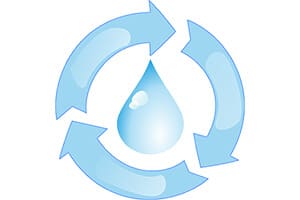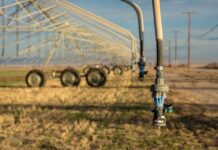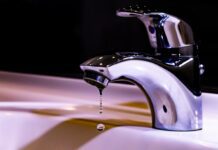
Water, the heart and soul of our planet is the key foundation of every civilisation which came into existence. From time immemorial, societies have been constructing innovative water infrastructure to meet the needs of a city. And today, the same old tale comes alive with ‘smart’ characters.These smart characters which are today known as technology are on the way to framing up smart water systems across the cities.
Emphasis is laid on the three important areas of smart water systems : desalination, water conservation and water recycling. Some of the smart countries in the world have already moved a step ahead in meeting the water demands with smart initiatives. Yet, there are some cities who are still facing challenges. Read on to know more about the smart water initiatives.
Smart Water Challenges In Smart Cities
The solution to water management is not the same for all the cities. All depends on the location or the geographical structure. Areas where water is found in abundance are facing challenges in managing pipeline corrosion and storm water. Whereas, the areas where water scarcity is the biggest problem are emphasising on conservation methods. On the other hand, ever increasing population towards cities, climatic changes and water pollution cause challenges which needs to be addressed with a different point of view.
International Water Association, a London based non-government organisation says that water bodies like lakes, ponds and wetlands which are sites of significant natural infrastructure that cities rely upon are repossessed for building and development. These active areas for water consumption should be conserved and used in smart water initiatives which is again a matter of concern.
How To Achieve A Smart Water Future?


The MIT Enterprise Forum of Cambridge Clean Technology Committee recently organised a conference where a panel of experts were invited to share their perspectives on how water resources can be managed in a better way through technology for future benefits. Approximately 90 experts partly from water management fields participated in the discussion. Some of the most important points which stimulated interest were:
- ‘The ability to use distributed assets in a collective way’. – This idea is based on architecture of buildings and cities. For sustainable water, constructions will have a localised water system. The wastewater will be treated and delivered for use in drinking, irrigation, and other purposes. The same water will be recycled for building use. This recycled water can also be made available to other neighbouring buildings by setting up a sharable water control system
- The water delivered is not efficiently used as it could be – The water supplied to every household is treated to meet the drinking quality which involves dynamic consumption of energy and equipment. However, only 1-2% of that water is effectively used for drinking and cooking. Further, centralised water systems depend on pumping so instead decentralised systems should be put to use which do not consume much energy. Hence, the cities which are moving forward with new water strategies should not invest in pumping systems and desalination
- A new vision towards dealing with impact of climate change like water storms, rising sea levels and change in rainfall pattern – To prevent the negative effects of climate change, underground garages can be used to store water from storms. The facility would equip the garage with pumps to allow the water to be readily available for use. This utility has the benefit of using the existing infrastructure which will help in saving capital investment which otherwise would be used in constructing new storage tanks and reservoirs
Singapore – The Global Hydrohub
Since the rationing period in 1960s, Singapore has emerged as the world’s smartest water management hub. It was the first country to adopt the method of recycling waste water after it faced water crisis. Today the ‘hydrohub’ has successfully established 180 water companies and 26 private research centres which aim at providing sustainable drinking water to the citizens 24/7.
Darco Water Technologies ltd., Singapore and Aquaporin A/S, Denmark are together pioneering in embarking a pilot project in Singapore which involves treatment of wastewater by forward osmosis process.The project aims at treating the wastewater streams flowing from multi-billion dollar industries. The forward osmosis process will increase the reuse of wastewater in Singapore.
Darco Water Technologies ltd established in 1999 designs wastewater treatment and provides customised water solutions to semiconductor, electronics, food, beverage, power and pharmaceutical industries. It also offers industrial water management solutions to municipal projects in the country.
Aquaporin A/S, a leading water technology company in the world with headquarters situated in Denmark has its branches in Singapore as Aquaporin Asia. The company implements innovative ideas in purifying water through biotechnological principles and techniques.
Both the countries are striving towards making Singapore a 100% wastewater recycling hub.
Wastewater Recycling Initiative In Abu Dhabi
Abu Dhabi receives 35% of the potable water from desalinating brackish sea water which drags intense amount of energy. On the other hand, the underground fresh water reserves in the city provide 65% of water for domestic purpose and irrigation. If the underground water reserves are put to use at the same current rate, then the reserves will completely exhaust after 50 years.
To handle this problem, Abu Dhabi is all set to incorporate two huge pipelines in the city which will make sure 70% of the recycled water reaches the irrigation sites and landscapes for further application.
A legal agreement has already been issued for the construction of new pipelines. The pipelines will promote 265,000 cubic metres of water recycling every day, according to Environment Agency Abu DhabI (EAD).
Prioritising recycled water for irrigation is a far-reaching alternative. But inadequacy of infrastructure in delivering cured wastewater to its destined place is a critical problem in Abu Dhabi. A 45% of recycled water is plainly released into the gulf without taking it into use. The new pipelines will save this water and ensure full utility of the treated wastewater in the city.
The region converts 910,299 cubic metres of wastewater daily into pure water for landscaping and irrigation. As a matter of fact, just 467,800 cubic metres of water is reused. One 40 km long pipeline will be constructed lateral to the Abu Dhabi – Dubai E11 highway. This pipeline will supply 140,000 cubic metres of water every day to places like Abu Muraikhi Forest, the Green Belt and Al Maha Forest. The second pipeline will be built near Al Ain Truck Road at a stretch of 30 km. This pipeline will supply 125,000 cubic metres of water to irrigation lands in Al Wathba and Al Nahda. The pipelines will be active by 2018.
In addition to the water recycling and conservation measures enforced by various tech-rich regions of the world, it’s noteworthy that more than half of the potable water available to us can be reasonably used and conserved only by us. This is important, because water is the sole sustenance of life. And, there is no substitute for water.



































